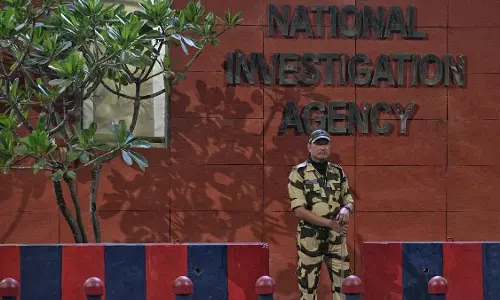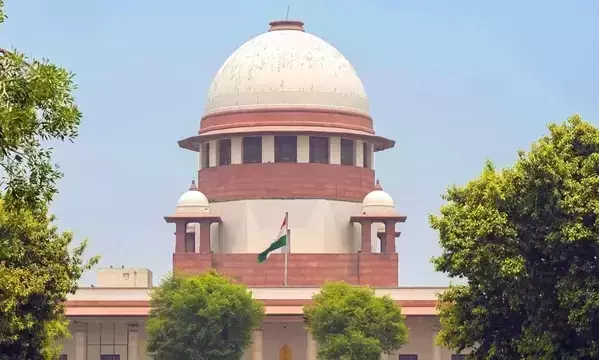
Prior sanction required to prosecute public servants under PMLA: SC
text_fieldsThe Supreme Court ruled on Wednesday that prior government sanction is necessary to prosecute public servants under the Prevention of Money Laundering Act (PMLA), affirming the applicability of Section 197(1) of the Code of Criminal Procedure (CrPC) in money laundering cases.
The bench upheld the Telangana High Court’s decision to quash a money laundering case against former Indian Administrative Service (IAS) officers Bibhu Prasad Acharya and Adityanath Das, stating that the prosecution lacked prior sanction.
The Enforcement Directorate had accused Acharya, in conspiracy with former Andhra Pradesh Chief Minister Jagan Mohan Reddy, of unlawfully allotting 250 acres of land for a Special Economic Zone project to Indu Techzone Pvt Ltd. Acharya was also alleged to have indirect involvement in money laundering. Das, who was the principal secretary of Telangana’s Irrigation and CAD Department, allegedly conspired with Reddy to divert 10 lakh litres of water from the Kagna River to India Cement Ltd.
Following the Enforcement Directorate’s challenge to the High Court’s order, SC clarified that both officers’ actions were linked to the discharge of their official duties, and therefore, Section 197(1) of the CrPC applied. This section mandates that public servants cannot be prosecuted without prior government sanction for acts committed in the course of their official responsibilities.
The Enforcement Directorate had argued that the charges against the former officers, abuse of official power for private gain, should negate the protection under Section 197(1). The agency also claimed that Section 71 of the PMLA, which gives precedence to the provisions of the Act over other laws, should override the CrPC.
However, the Supreme Court rejected this argument, ruling that the provisions of the CrPC continue to apply to PMLA proceedings where no conflict exists. The court referenced Section 65 of the PMLA, which ensures the applicability of CrPC provisions to PMLA cases, as long as they do not conflict with the Act. It found no provisions in the PMLA that contradicted Section 197(1) of the CrPC.
This ruling reinforces the importance of obtaining prior government sanction before prosecuting public servants under the PMLA and clarifies the relationship between the PMLA and CrPC. The court emphasized that Section 71 of the PMLA, which asserts the precedence of the Act over conflicting laws, does not override the CrPC provisions applicable to PMLA cases.






















